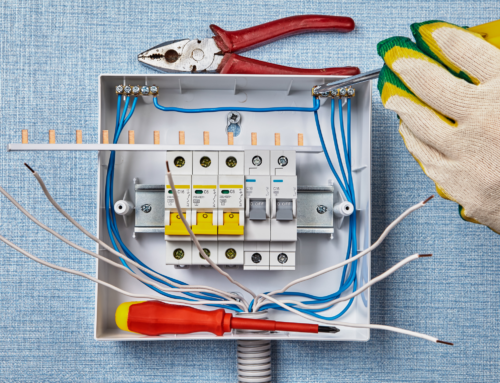No Electric? We can help.
What to do if the same fuse keeps blowing on an electrical circuit. We have compiled a quick how-to guide which explains the commons causes and what to do next.
A fuse or circuit breaker trips off the electrical power flow to protect an electrical circuit from damage caused by excess current from an overload or short circuit.
Here are the 3 most common triggers that keep fuses blowing again and again.
1. A faulty electrical appliance – Electrical appliances may cause your fuse to blow due to a fault with the appliance itself, such as a loose connection or a blown light bulb. If you think an appliance might be the cause follow these steps –
- Unplug all your appliances on the tripped circuit, turn the power back on and see if it stays on
- If it does…start plugging in one appliance at a time.
- If the power cuts out when a certain appliance has been plugged in, chances are you’ve found the problem.
- To double check, plug only the faulty appliance in to the circuit (nothing else) to see if it trips the circuit breaker.
2. Short circuit fault – A short circuit occurs when part of a wire carrying current touches another wire or part of the circuit and gives the electricity a path of less resistance. For example, if a wire with faulty insulation becomes exposed and touches a metal light switch. A short circuit fault can be caused by such things as –
- Faulty Insulation; Old or damaged insulation allows neutral and live wires to touch, or a nail/screw punctures a cable
- Loose Connections; Cable terminations can loosen, sometimes allowing neutral and live wires to touch.
- Household Pests; Animals like mice, rats and squirrels sometime chew on wires.
- Faulty Appliances: Old or broken appliances can develop shorts over time. Short circuits in appliances can occur in the plugs, in the power cords or inside the device.
If you think you may have a short circuit, it is important to get your circuit tested and repaired by a certified electrician.
3. Circuit overloading
An electrical circuit with too many electrical devices turned on can exceed the circuit limit. Circuit breakers or fuses will automatically shut off the circuit at the fuse board to prevent the circuit from overheating. You can avoid overloading sockets and risk of fire by following this simple advice –
- Only use one socket extension lead per socket and never plug an extension lead into another extension lead
- Never overload an extension lead by plugging in appliances that together will exceed the maximum current rating stated for the extension lead.
- Check that your circuit breaker or fuse is the correctly rated for your circuit (seek advise from a certified electrician).
- There could be a lot of sockets wired on one circuit. Check to see how many appliances are plugged in.



